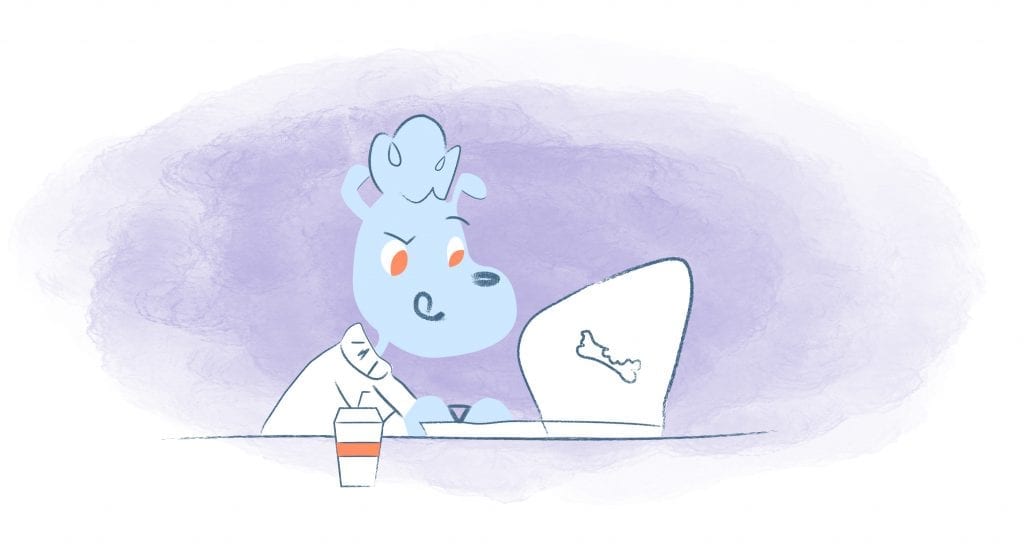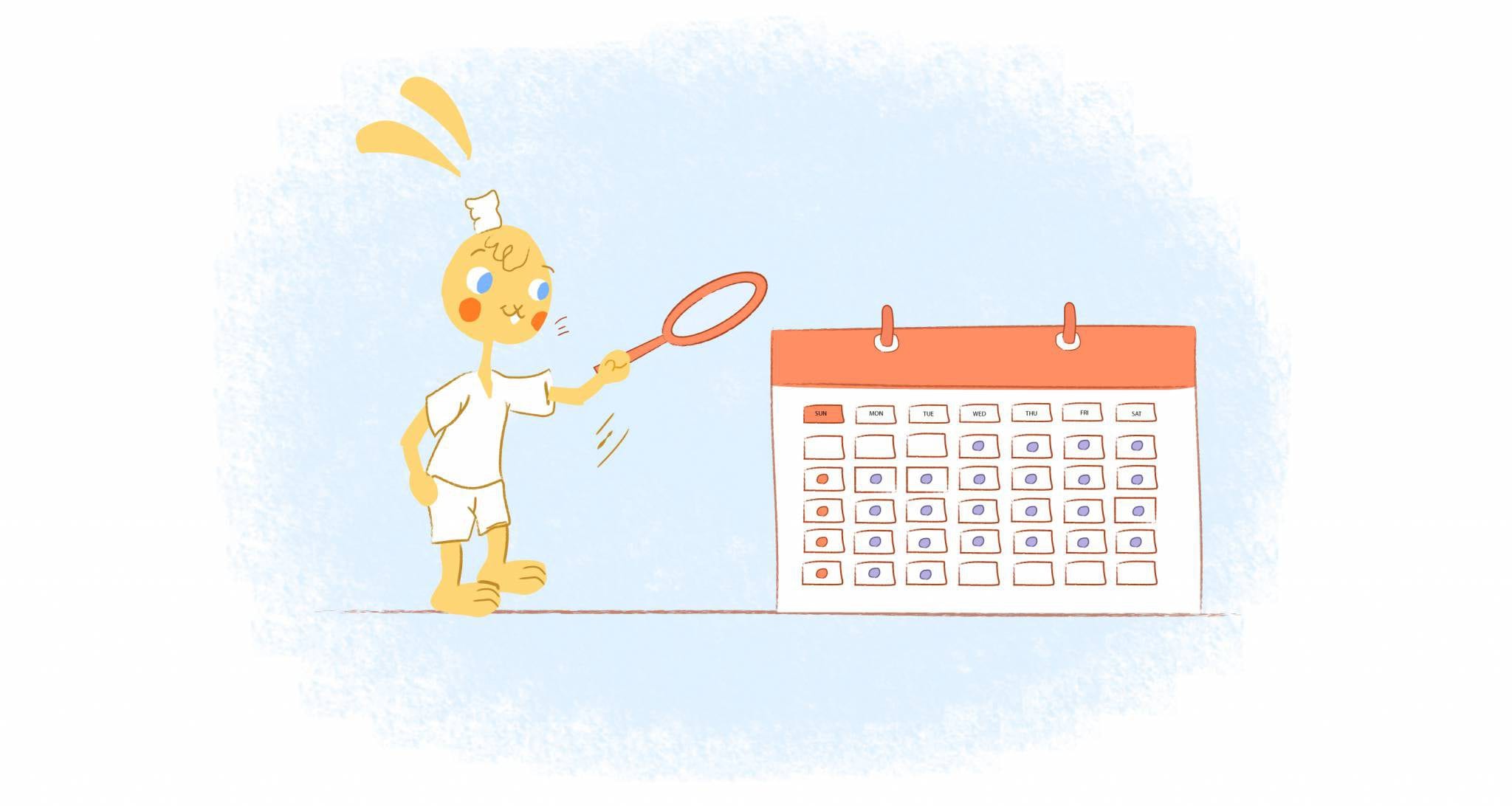

It may sound counterproductive to work less in a world that values hustle culture intentionally. Historically, we have been trained to believe that success directly results from relentless effort. There seems to be a mantra: more time, more results.
However, what if that equation is flawed? Could the relentless pursuit of more hours hinder our progress, stifle our creativity, and reduce our productivity? Research, history, and compelling real-world examples point to a surprising logical truth: working less can result in significantly more output.
I get that skepticism. After all, this challenges deeply ingrained beliefs. But when we examine the intricate workings of human energy and the delicate dance of focus, the counterintuitive wisdom of working less becomes insightful and profoundly insightful.
In this article, we’ll dismantle traditional productivity myths and explore why taking a break can lead to success without sacrificing your well-being or results.
The Productivity Paradox Unveiled: Beyond the Illusion of More
The key to this seemingly paradoxical idea is that productivity isn’t linear. In other words, you don’t automatically get more productive by clocking more hours at the office. There are numerous instances in which the opposite is true.
Take into consideration the natural limitations of people’s energy and attention. In cognitively demanding tasks, the law of diminishing returns kicks in after around 35 to 40 hours of work per week.
As the hours pass, productivity drops steadily. Further, as you work, errors creep in. Decision fatigue rolls in, clouding your judgment. And, as your brain longs for rest, it actively resists what’s happening. Even though you are physically present, you cannot produce high-quality, impactful work. By filling the space without truly contributing, you become merely an occupant.
We often mistake motion for genuine progress, and we fall victim to this mistake all too frequently. Simply being busy, constantly ticking items off a never-ending task list, creates the illusion of productivity. However, busyness is not synonymous with effectiveness. Rather than counting the hours spent, actual productivity is measured by the quality of the output produced within those hours.
Historical Validation: The 8-Hour Workday – A Strategic Move Towards Efficiency
Even though the modern 8-hour workday is often seen as a victory for labor rights and humane working conditions, it was originally a practical measure to increase productivity. In the early 20th century, Henry Ford made a bold and counterintuitive move: drastically shortened his factory workers’ hours from grueling 10-12 hours to 8 hours, doubling their wages.
Quite simply, the results were transformative. There was a surge in productivity within his factories. Why? Due to Ford’s understanding of the human capacity principle, overworked and exhausted employees are inefficient. By giving his workers more time to rest, recuperate, and enjoy their personal lives, he ensured they returned to work with renewed energy, sharper focus, and a greater capacity for sustained effort.
Ford, however, wasn’t the only one to realize this. Throughout history, economists and psychologists have observed that limiting work hours often significantly increases output.
In addition to these historical observations, modern scientific research supports them. Researchers at Stanford University found that individuals who consistently work more than 50 hours a week experience a significant and measurable drop in productivity. After 55 hours of work, the decline becomes so precipitous that more time spent at the office yields no additional benefits. The stark reality? After a 70-hour workweek, you accomplish almost nothing extra for those arduous extra hours.
The Paradoxical Power of Less Time: Forging Unwavering Focus
Another compelling argument for the “less is more” approach to productivity is found in the inherent power of time constraints. Have you ever faced an imminent deadline, perhaps before a long-awaited vacation or before the weekend, when you were scrambling to complete a task? During those moments of limited time, your focus likely sharpened considerably. As a result, procrastination melted away, and you were able to make more accurate and timely decisions. By constraining your attention and driving efficiency, you honed your skills.
Parkinson’s Law summarizes this phenomenon: “Work expands to fill the time available for its completion.” If you devote an entire day to a task, it will consume the entire day, often taking unnecessary tangents and detours. In contrast, a strict two-hour deadline will force you to prioritize, eliminate distractions, and focus on accomplishing the same task. When you consciously decrease your working hours, you create an atmosphere of urgency that increases your focus and efficiency.
The Well-Nourished Brain: The Foundation of Superior Work
Our brains, the engine of our productivity, are not inexhaustible. When performing cognitively demanding tasks such as writing, strategic planning, or complex problem-solving, one needs time to rest and recover.
As a result of prioritizing rest and allowing your brain adequate downtime, several key benefits develop:
- Enhanced decision-making. When the brain is well-rested, information is processed more efficiently, leading to better and more effective decision-making.
- Creative flourishing. During downtime, our brain can make new connections and generate innovative ideas.
- Unwavering focus. A rested brain can concentrate better and pay attention for longer periods.
- Accelerated stress recovery. Stress hormones are regulated when the body and brain receive adequate rest after intense work, resulting in a rapid recovery.
Conversely, prolonged workdays and insufficient sleep lead to mental fatigue and stress hormone buildup. In the end, this toxic cocktail clouds judgment, impairs memory, and lowers the quality and efficiency of your work. In other words, working fewer hours while ensuring sufficient rest and recovery is not a sign of weakness but a strategy to protect your most valuable asset—your brain—for the hours you are actively working.
The Compelling Case for Shorter Workweeks: Real-World Validation
Globally, forward-thinking companies are increasingly conducting real-world experiments to validate the theoretical benefits of reduced working hours. Often, the results are astounding;
- During Microsoft Japan’s groundbreaking 4-day workweek trial, employee productivity increased by 40%.
- An extensive, multi-year trial in Iceland demonstrated improved employee well-being and equal or even higher output levels, without any pay cuts.
- According to Buffer, a prominent social media management company, implementing a four-day workweek significantly mitigated employee burnout and fostered a more focused working environment.
Experiments like these prove that when employees have more time to rest, manage their personal lives, and do stuff outside of work, they always show up to their professional responsibilities with better focus, creativity, and motivation.
The Misconception of Rest: Fuel, Not Folly
As a culture, we have conditioned ourselves to view rest as the antithesis of productivity, as a passive state that wastes time. Because of this ingrained belief, people often feel guilty about relaxing and resent downtime. Reality, however, is that rest isn’t an enemy of output; it’s a vital fuel for productivity. We need it to power our next sprint of focused work.
Leisurely activities, sleep, and deliberate downtime are not luxuries to indulge in after “real” work has been accomplished. As integral and indispensable components of the production process, they are essential to its success.
A look at the work habits of some of history’s most prolific and influential creators will reveal the following;
- Even though he made enormous contributions to science, Charles Darwin usually managed to write for three 90-minute periods a day.
- Famous for his disciplined work ethic, Ernest Hemingway wrote in the early morning hours and usually finished by noon.
- During leisurely walks or quiet rest, Nobel laureate John Gurdon, a pioneer in developmental biology, reported that he often stumbled upon his most profound and creative insights.
This was not a case of individuals shirking their responsibilities. By mastering their own energy and attention, they could balance focused work and essential recovery, and they wisely avoided fighting against their natural rhythms.
Working Less: Not Slacking, But Strategic Brilliance
You are not committing indolence or abandoning discipline by embracing the principle of working less for more. Instead, we need to change our mindsets — to work smarter, not harder. Rather than simply counting hours, we’ll want to focus on impact and effectiveness.
Using this powerful principle in your own life and work is easy with these practical strategies.
- Define your high-value work. You’ll be able to solve complex problems, build relationship-building skills, close deals, and construct impactful written communications when critically analyzing your role. Put these high-leverage activities at the top of your priority list.
- Ruthlessly limit meetings and multitasking. Don’t let unproductive meetings drain your time, and don’t mistake multitasking for productivity. Focus on deep, uninterrupted work during significant blocks of time. It’s essential to politely decline unnecessary meetings and consciously resist the urge to juggle multiple tasks simultaneously.
- Embrace the 80/20 rule (Pareto Principle). According to this principle, approximately 80% of your outcomes come from just 20% of your inputs. Focus on the 20% of your work that yields the most significant impact, and double down on those activities.
- Implement time blocking and strict constraints. Focus your workday on high-priority tasks by creating 90-minute deep work sprints. The most important thing is to set fixed quitting times and stick to them rigorously. By setting artificial deadlines, you can keep your focus and prevent your workload from expanding beyond your availability.
- Practice deliberate rest and recovery. Set aside time for real, restorative breaks during your day—a lunch break away from the screen, a walk in nature, or an evening without work-related devices. You should not view rest as a reward after a long day at work but rather as a tool that helps you stay productive.
Overcoming the Emotional Hurdle: Releasing the Guilt of Less
It is often more emotional than practical barriers that prevent us from embracing a reduced workload. Occasionally, you may feel guilty, feel like you haven’t worked hard enough, or worry about disappointing your superiors or coworkers.
Often, this mindset is a byproduct of “hustle culture”—the widespread belief that constant work is a moral imperative. However, this notion is not only unsustainable but also fundamentally outdated.
Burning yourself out isn’t inherently noble. Prioritizing your energy and well-being is a crucial leadership skill. By modeling sustainable work habits, you can encourage others to do the same, fostering a healthier and more productive work environment.
The Evolving Future of Work: Embracing the Power of Less
Organizations and individuals increasingly recognize the limitations of the traditional paradigm of “more hours equal more output”. They are adopting flexible schedules, shorter workweeks, and results-based measurement, in which value created is valued more than hours worked.
Rather than simply measuring time spent, we emphasize value generated, progress made, breakthroughs realized, efficient decisions, and purposeful actions taken.
If you’ve been adding more hours to your already jam-packed schedule to increase productivity, perhaps it’s time to flip the script.
Take a moment to ask yourself some fundamental questions;
- Could I intentionally do less, but with significantly greater focus and intention?
- Would it be possible to work fewer hours, but be more focused and energetic when I do?
- How would productivity look if it were measured not by the sheer volume of time invested but by tangible progress and tangible traction?
With the strategic and empowering embrace of less, you might just find the path to sustained and superior performance.
Conclusion: Reimagining Productivity for a Sustainable Future
Working less does not mean shirking responsibility or being lazy. The goal is to cultivate an awareness of the finite nature of human energy and the critical importance of cognitive wellbeing. It’s about creating the space for sustained focus, energy, and strategic thinking. The goal is to switch from the often-futile pursuit of mere busyness to the tangible and rewarding reality of genuine effectiveness.
You must rethink your approach to work and life to achieve a more sustainable and ultimately more productive way of operating.
Here’s your permission slip. Consider closing your laptop a few minutes earlier. Don’t get sucked into your inbox. Rejuvenation and rest should be prioritized. It’s not that you’re falling behind; you’re actually working smarter.
Ultimately, that might be your most productive move all day.
FAQs
Isn’t working fewer hours just being lazy or less committed?
Absolutely not.
It is not about slacking off, but about working smarter and more efficiently in a short timeframe. In today’s knowledge-based economy, the traditional 40-hour workweek doesn’t always align with optimal cognitive function and sustained focus. By working fewer hours, you can be more focused and deliberate.
How can less time at work possibly lead to more productivity?
This seemingly paradoxical outcome is the result of several factors;
- Increased focus and urgency. Less time makes you more likely to prioritize tasks and eliminate time-wasting activities. Being aware of a tighter deadline can help you focus and minimize distractions.
- Reduced burnout and fatigue. Overworking decreases cognitive function, creativity, and overall output due to physical and mental exhaustion. With fewer hours of work, we have more time to recover and rest, leading to higher energy levels and better concentration.
- Improved well-being and motivation. Fewer work hours can significantly boost employee morale, job satisfaction, and well-being. The more engaged and productive employees are, the more likely they are to be happy and healthy.
- Enhanced efficiency and innovation. With less time available, individuals and teams often look for better ways to work, streamline processes, and eliminate unnecessary steps. As a result, innovative solutions can be adopted and creativity can be fostered.
- Minimized “presenteeism.” It’s not always true that long hours at work translate to actual results. With long work hours, “presenteeism” — being physically present but not engaged or productive — is common. Focused engagement during work time is encouraged by a shorter workday.
What are some common misconceptions about working less?
People and organizations often ignore the benefits of shorter work hours due to the following myths;
- More hours directly equal more output. The reality is that this often leads to diminishing returns and burnout.
- Working less signifies a lack of dedication. Truthfully, it can signify productivity and efficiency.
- It seems impossible to get the same amount of work done in less time. However, it’s often possible to accomplish this through focused effort, prioritization, and streamlined processes.
- Shorter work hours are only feasible for certain industries. However, focused work and better rest can certainly benefit a variety of sectors, regardless of how they are implemented.
How can I personally increase my productivity while working fewer hours?
The following are some actionable strategies for maximizing your output in a short period of time;
- Prioritize ruthlessly. First, identify the most important tasks and focus on them. You can guide your prioritization using frameworks such as the Eisenhower Matrix (urgent/important).
- Time blocking. Keep a calendar with specific times for specific tasks and stick to them as much as possible.
- Minimize distractions. Turn off notifications, close unnecessary tabs, and communicate your need for uninterrupted work time to create a focused work environment.
- Batch similar tasks. Grouping similar tasks together (e.g., answering emails, making phone calls) reduces context switching and maximizes efficiency.
- Utilize the Pomodoro Technique. Work in focused bursts (e.g., 25 minutes), taking short breaks to maintain concentration and prevent mental fatigue.
- Learn to say “No.” If a request is not essential to you, politely decline it.
- Streamline processes. Consider automating or simplifying repetitive tasks.
- Optimize meetings. They should be short, focused, and have clear agendas. Also, eliminate all unnecessary meetings.
- Take regular breaks. Short breaks throughout the day can boost focus and prevent burnout.
- Practice effective communication. To avoid misunderstandings and wasted time, communicate clearly and concisely.
- Reflect and adjust. Be proactive in reviewing your productivity strategies and identifying improvements.
- Prioritize rest and well-being. Get enough sleep, eat well, and exercise regularly to keep your energy levels and cognitive function high.
What are the potential challenges of implementing shorter work hours?
Although there are many benefits, there are also challenges;
- Initial adjustment period. You have to adapt to working more intensely when you work fewer hours.
- Potential for increased stress (at first). When not managed effectively, the pressure to complete the same amount of work in less time may initially seem stressful.
- Industry-specific constraints. Industries with round-the-clock operations or strict deadlines can face logistical challenges.
- There is a need for a cultural shift. For employees and management to embrace the value of focused work over hours spent, a shift in mindset is crucial.
- Careful planning and implementation. To make a successful transition, you must plan carefully, communicate clearly, and possibly restructure workflows and processes.
Image Credit: Photo by Luca Nardone;Pexels











John Hall
John Hall is the co-founder of Calendar a scheduling and time management app. He’s also a keynote speaker that you can book at http://www.johnhallspeaking.com.